Subscriber Benefit
As a subscriber you can listen to articles at work, in the car, or while you work out. Subscribe NowEditor’s note: This article has been updated.
Interviews of nine judges and lawyers seeking to succeed retiring Judge Edward Najam Jr. on the Court of Appeals of Indiana are complete. Now, the seven-member Indiana Judicial Nominating Commission is deliberating on the top three candidates to send to the governor, who will choose Indiana’s next appellate judge.
The commission conducted interviews with the candidates on Monday, asking questions that ranged from the application of stare decisis and erosion of confidence in the judiciary to candidates’ judicial philosophies and the influence of current events on judicial decision-making.
Now that all nine interviews are complete, the commission is meeting in executive session. It will publicly vote this evening on the three most qualified candidates.
The names of those three candidates will then be submitted to Gov. Eric Holcomb, who will have 60 days to select the next Court of Appeals judge.
Live coverage from the interviews can be found on Twitter via @Indiana_Lawyer.
Here is a snapshot of some questions and responses from each of the candidates interviewed Monday afternoon:

Vigo Superior Judge Lakshmi Y. Reddy
Judge Lakshmi Y. Reddy of the Vigo Superior Court was nominated by the Commercial Court Committee and approved by the Indiana Supreme Court to start a Commercial Court in Vigo County in 2021. Reddy said she’s excited about the prospects of that endeavor for her community.
“I love handling complex cases,” Reddy said. “The role is to help businesses resolve their cases more efficiently.”
The Vigo County judge said that she is a textualist when it comes to judicial interpretation and that she would want to be remembered for having made positive transformational change if appointed to the appellate court.
Referring to her extensive work with family law cases, Reddy said one issue she would want to address as an appellate judge is the adversarial nature of cases involving families and kids.
“It’s not good for children,” she said.
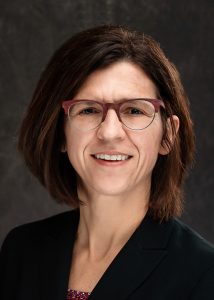
Stacy R. Uliana, Uliana Law, Bargersville
Having a significant background in criminal defense wouldn’t be hindrance to Bargersville attorney Stacy Uliana if selected on the appellate bench, she said.
Rather, Uliana said she thinks her experience could help the public have greater confidence in the judiciary. She credited her parents with instilling in her empathy and a desire to serve “the little guy” in all situations.
When asked whether stare decisis conflicts with originalism, Uliana said as an appellate judge, stare decisis has to rule.
“My job is to stay in my lane and follow the law,” she said. “If an earlier decision applied originalism, great. If it didn’t, I cannot overrule that.”
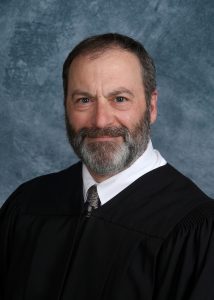
Vigo Superior Judge John T. Roach III
Hoosiers have a right to expect their judges to be prepared and efficient, said Judge John T. Roach III of the Vigo Superior Court.
“I think the lawyers have the exact same expectation,” Roach added. “They also have the right to expect that there is a level playing field when it comes down to the judge’s decision-making.”
Public confidence in the judiciary has eroded, Roach opined. He noted that if a judge’s decision isn’t seen as legitimate, the public will ask, “What’s the use in following them?”
When asked what major legal issues he expects to arise in Indiana, Roach said he anticipates that a recent appellate decision about negligent infliction of emotional distress damages will head to the Indiana Supreme Court.

Owen Circuit Judge Kelsey B. Hanlon
Watching her father build his hardware store from the ground up inspired Judge Kelsey Hanlon of the Owen Circuit Court to be a hard worker from an early age.
Hanlon said her experience as a judge in a rural community has afforded her many experiences that would benefit the Court of Appeals. If chosen for the COA vacancy, she said her appointment would send a message that working in a rural county does not discount you from the race.
Hanlon dismissed questions regarding her age — 37 — and relative lack of experience compared to other candidates, calling the concerns unfounded. When asked about what feeds her hunger to learn more about the law, Hanlon said she is an “intellectually curious person.”
“That is what fuels the desire to learn. I’m interested in the theoretical and philosophical side of things,” she said. “I have a love of the law and a real interest in the rule of law because it has such an impact on this country.”
Here is a snapshot of some questions and responses from each of the candidates interviewed Monday morning:
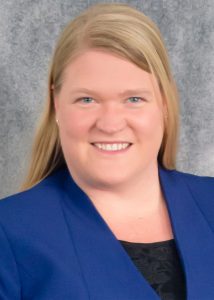
Jane D. Wilson, partner, Faegre Drinker Biddle & Reath, Indianapolis
Attorney Jane Wilson said she has known she wanted to be a lawyer since the seventh grade. However, joining the judiciary would be an “incredibly unique” opportunity for her because being involved in the application of the law has been “incredibly enticing.”
When it comes to her judicial philosophy, Wilson said she leans toward textualism and originalism.
“I think it’s tricky to ascribe intent to the Legislature or the framing founders,” Wilson told the commission. “I am not someone who believes that we have a living Constitution. But I also think it’s true there are some instances where there is no original intent.”
Wilson said that although she has spent much of her career representing corporations and entities, the most meaningful cases to her have been pro bono cases in which she represented individuals.
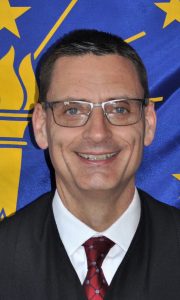
Morgan Superior Judge Peter R. Foley
When asked how he grapples with developing himself amid societal changes in a geographic area that may be slower to adopt change, Morgan Superior Judge Peter R. Foley said a judge must consistently do what’s right and be dedicated to that charge.
“One component of a judge is the courage to follow the law when a community might be against it,” he said. “Or the courage to do what’s right when the larger culture might be against it.”
If selected to the appellate court, a major adjustment for Foley would be the pace of work, he said.
“In a trial court, you may be an inch deep and a mile wide,” he said. “Being one the appellate court would be a more introspective review. That would be a period of adjustment.”
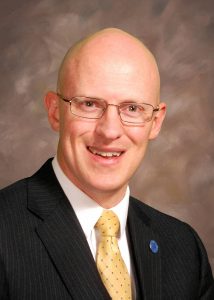
Jason W. Bennett, supervisor of Supreme Court Services, Indiana Supreme Court, Indianapolis
Jason W. Bennett, who serves as supervisor of Supreme Court Services for the Indiana Supreme Court, said if he were to join the appellate bench, writing dissents would not be a source of conflict but rather of point of construction. A dissent, he opined, should “create light and not heat.”
“It’s not about sticking barbs into someone who disagrees, it’s just about explaining why I see things differently,” he said.
In his previous work in private practice, Bennett handled both criminal and civil matters. He said he most enjoyed serving the underdogs of criminal cases.
When it comes it comes to learning from other people’s perspective, listening is the route Bennett said he prefers to take.
“I already know what I think,” Bennett said. “I want to hear what other people think.”
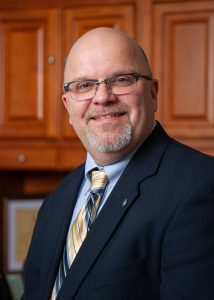
Bartholomew Superior Judge James D. Worton
Citing his experience as chief of the Columbus Police Department, Judge James D. Worton of the Bartholomew Superior Court said trial judges may not realize that they are suffering from vicarious trauma associated with the difficult and heartbreaking cases that come before their benches.
“I think it’s important to have in the judiciary some sort of procedure in place that when we see the effects of trauma on the judicial officer, that there is some way to encourage them strongly to get the help they need,” Worton said.
Worton also advocated for the need to bolster mental health services within the state courts, saying problem-solving courts are the “way of the future” in Indiana. He also cited the importance of working to foster successful leadership.
“It’s not about having your own kingdom as a judge,” Worton said. “It’s about collaboration and working together.”
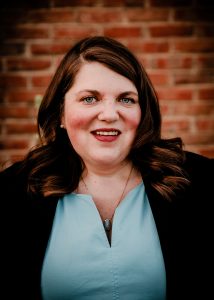
Yvette M. LaPlante, LaPlante LLP, Evansville
Yvette LaPlante, an Evansville lawyer, pointed to her experience as president of the Evansville Bar Association and her time as small firm practitioner as an example of her ability to lead on both ends of the spectrum. At the end of the day, remaining calm and listening are critical components of being a good leader, she said.
“Listening is the secret to resolving conflict,” LaPlante said. “People are hard to hate up close.”
When asked if the judiciary has a role in restoring its credibility, LaPlante said “absolutely.”
“I would like to think that the Indiana courts are doing a good job of preserving that credibility,” she said. “I think that role is leading by example and showing people that we are candid and transparent and listening and that we are committed to access.”
This article will be updated.
Please enable JavaScript to view this content.
